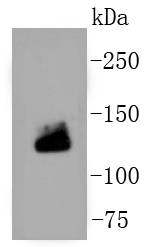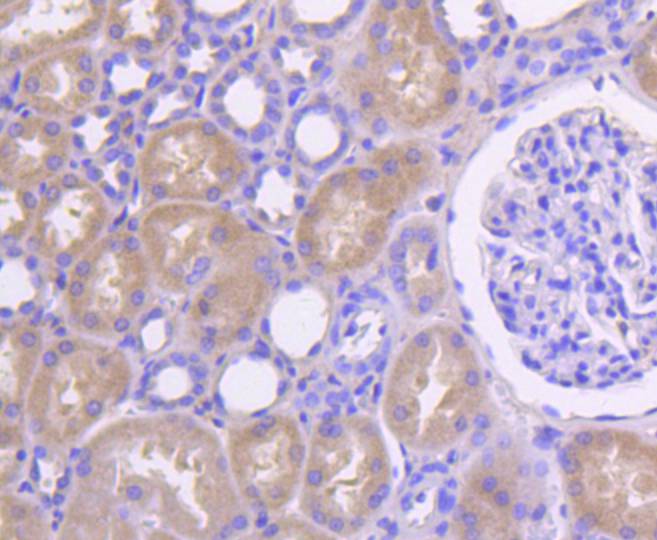Product Detail
Product NameCOL1A1/Collagen Ⅰ Rabbit mAb
Clone No.ST58-04
Host SpeciesRecombinant Rabbit
Clonality Monoclonal
PurificationProA affinity purified
ApplicationsWB, IHC
Species ReactivityHu, Cow
Immunogen Descrecombinant protein
ConjugateUnconjugated
Other NamesAlpha 1 type I collagen antibody Alpha 2 type I collagen antibody alpha 2 type I procollagen antibody alpha 2(I) procollagen antibody alpha 2(I)-collagen antibody Alpha-1 type I collagen antibody alpha1(I) procollagen antibody CO1A1_HUMAN antibody COL1A1 antibody COL1A2 antibody collagen alpha 1 chain type I antibody Collagen alpha-1(I) chain antibody collagen alpha-1(I) chain preproprotein antibody Collagen I alpha 1 polypeptide antibody Collagen I alpha 2 polypeptide antibody collagen of skin, tendon and bone, alpha-1 chain antibody collagen of skin, tendon and bone, alpha-2 chain antibody Collagen type I alpha 1 antibody Collagen type I alpha 2 antibody EDSC antibody OI1 antibody OI2 antibody OI3 antibody OI4 antibody pro-alpha-1 collagen type 1 antibody type I proalpha 1 antibody type I procollagen alpha 1 chain antibody Type I procollagen antibody
Accession NoSwiss-Prot#:P02452
Uniprot
P02452
Gene ID
1277;
Calculated MW130 kDa
Formulation1*TBS (pH7.4), 1%BSA, 40%Glycerol. Preservative: 0.05% Sodium Azide.
StorageStore at -20˚C
Application Details
WB: 1:1,000-1:2,000
IHC: 1:50-1:200
Western blot analysis of COL1A1 on human placenta lysates using anti-COL1A1 antibody at 1/1,000 dilution.
Immunohistochemical analysis of paraffin-embedded human kidney tissue using anti-COL1A1 antibody. Counter stained with hematoxylin.
Immunohistochemical analysis of paraffin-embedded human uterus tissue using anti-COL1A1 antibody. Counter stained with hematoxylin.
The extensive family of COL gene products (collagens) is composed of several chain types, including fibril-forming interstitial collagens (types I, II, III and V) and basement membrane collagens (type IV), each type containing multiple isoforms. Collagens are fibrous, extracellular matrix proteins with high tensile strength and are the major components of connective tissue, such as tendons and cartilage. All collagens contain a triple helix domain and frequently show lateral self-association in order to form complex connective tissues. Several collagens also play a role in cell adhesion, important for maintaining normal tissue architecture and function.
If you have published an article using product 48905, please notify us so that we can cite your literature.





 Yes
Yes



